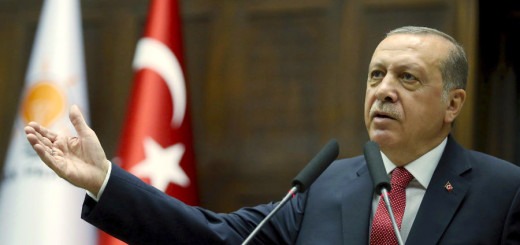AECP Receives $780,000 Grant from World Diabetes Foundation to Combat Diabetes Complications in Armenia

News of this grant was announced in May during a visit to Armenia by WDF. From May 13-17, representatives from the foundation, which is based in Denmark, visited various provinces throughout Armenia alongside AECP and Armenia’s Ministry of Health to get better acquainted with the important components of this project.
While in Armavir, they visited AECP’s recently developed diagnostic eye clinic – the Don H. and Vardi Vanitzian Diagnostic Eye Clinic – which includes the capacity to diagnose potentially blinding eye diseases. WDF representatives were able to witness in-depth eye examinations and see how diagnostics are carried out in the facility using artificial intelligence (AI) to diagnose diabetic retinopathy as a complication of diabetes. Additionally, representatives observed how AECP practices diabetes management techniques among patients with diabetes with the use of glycosylated hemoglobin tests. The group also visited the AECP Mobile Eye Hospital to see the further steps of detailed examinations and treatment. In some cases, patients learned about their diabetes only through these screenings when the fundus of the eye had already been affected by the disease. In the villages of Gegharkunik province, WDF was able to observe eye and diabetes screenings in action and had the opportunity to discuss the work of AECP, Armenia’s Ministry of Health and WDF with local physicians and people with diabetes.
“This program is a continuation of the cooperation started in 2017,” AECP Country Director Nune Yeghiazaryan said. “The program has expanded over the years, increasing the scope of care for patients as well as working toward improving Armenia’s healthcare policy and strengthening local capacities both through training and provision of equipment.”
Yeghiazaryan also elaborated on the innovative ways in which AECP has implemented its Diabetes Program in Armenia. This includes diagnosis through AI; data collection and analysis online; the creation of an online database and the ability to check glycosylated hemoglobin with mobile devices. “Starting this year, widespread diabetic foot screening will be implemented for the first time in Armenia,” Yeghiazaryan added. “As well, an institutionalized approach to the development of a diabetes school will be introduced, as part of Armenia’s National Diabetes Strategy, which was also developed thanks to this cooperation.”
“This joint initiative is the result of eight years of cooperation in Armenia, the aim of which is to support the implementation of a comprehensive diabetes strategy and transform diabetes care delivery in the country,” Kirza Buch Kristensen, Head of Strategy and Business Development at the World Diabetes Foundation, said. “The previous projects achieved notable success, surpassing targets and contributing to the improvement of diabetes service delivery in Armenia. With a strong foundation in place, we are committed to continuing the program nationally and continuing to make a meaningful difference in the lives of those affected by diabetes.”
Armenia’s Ministry of Health also acknowledges the great benefit that this diabetes program has provided. “This cooperation is very effective,” said Nora Pahlevanyan, a representative from Armenia’s Ministry of Health. “It was especially important that we created a National Diabetes Strategy and action plan. With this new program, we will be able to implement a number of key measures together.”
“We hope we will continue this joint work with our partners through new, interesting programs and innovative models to prevent the complications of diabetes in Armenia and contribute to the better health of our patients,” Yeghiazaryan added.
In the span of the three-year grant, from 2024 to 2027, eye examinations of more than 40,000 residents in Armenia, including those forcibly displaced from Artsakh, will be performed; laser eye treatments and surgeries will be performed on thousands of patients throughout the country; a diabetic foot screening program will be conducted for the first time in Armenia; 60 regional medical facilities in the country will be strengthened through updated equipment and tools to detect and treat diabetes and diabetes-related eye disease; training for approximately 1,500 medical workers in the country will be organized including guidelines and protocols related to diabetes management and its complications; and several diabetes schools will be established in the provinces of Armenia.
As well, the AECP will work closely with Armenia’s Ministry of Health throughout the duration of this program to update the country’s current National Diabetes Strategy and develop a roadmap for the future, ensuring the greatest benefit for the country of Armenia and its residents.
The AECP, together with WDF, has been implementing diabetes and diabetes complications prevention programs since 2017. During this period, about 30,000 people with diabetes have undergone eye examinations, of which more than 10,000 were diagnosed as having diabetic retinopathy or another diabetic eye disease; more than 3,000 Armenians have received eye surgery in relation to their condition; thousands of healthcare workers in the country have been trained; and medical centers have been outfitted with equipment, data collection and analysis systems, professional and public education trilingual online platforms and many educational materials.







